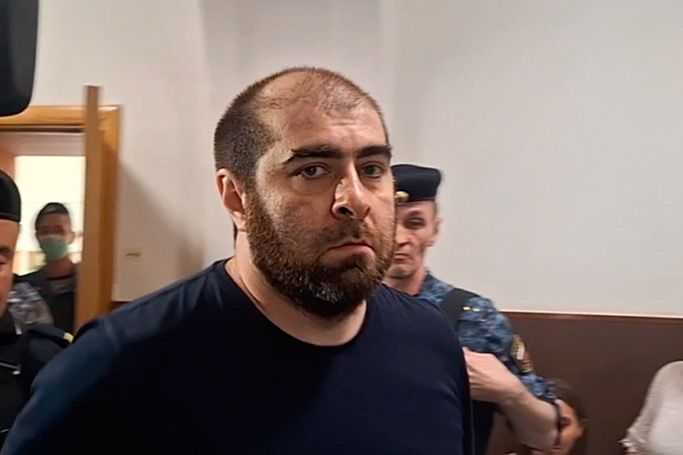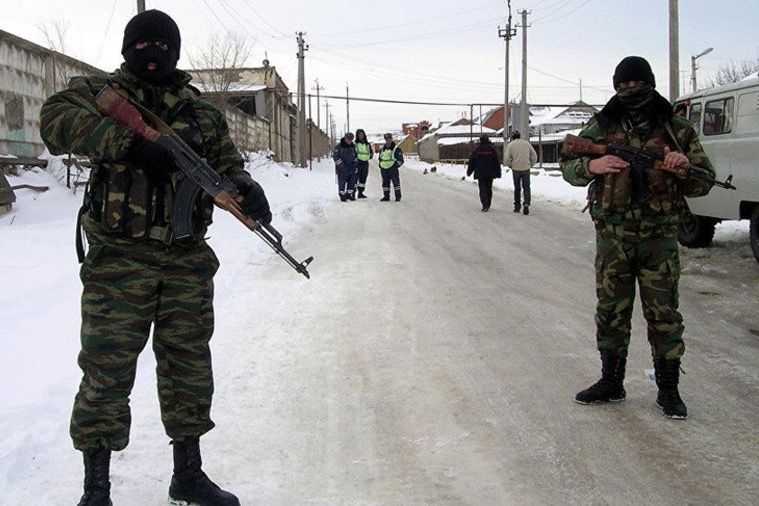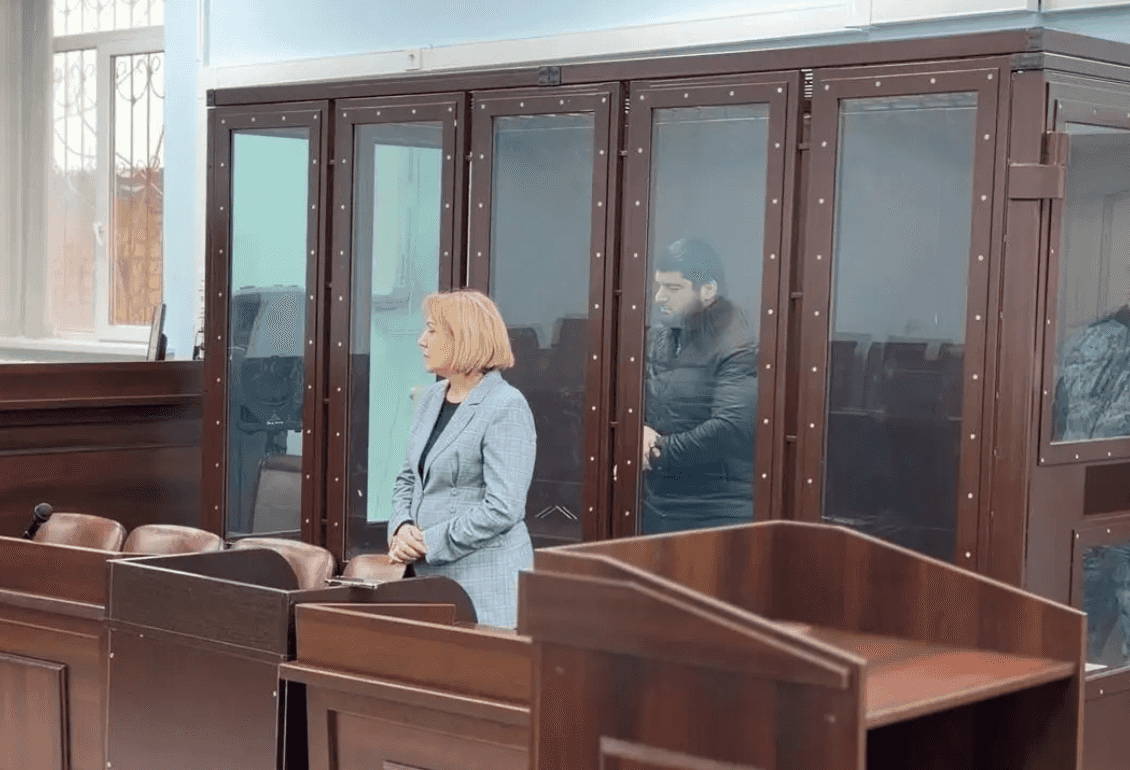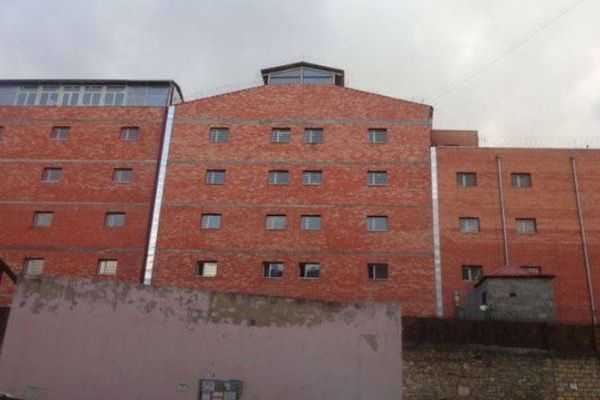
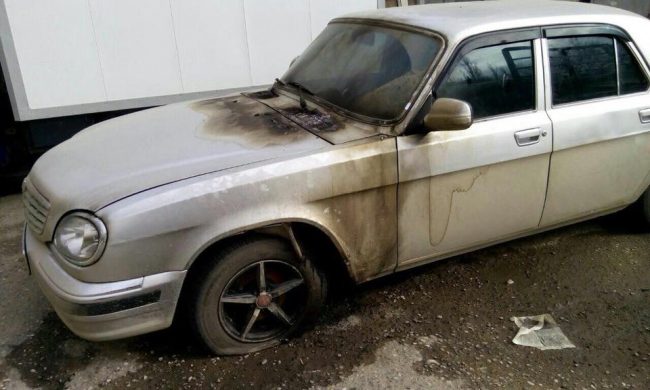
 A car belonging to Russian rights group Memorial was set on fire in Daghestan on 22 January by unknown people. This was followed by threatening calls and text messages to staff the following day, ordering the group to cease activities or ‘next time we’ll set fire to the office with you inside’.
A car belonging to Russian rights group Memorial was set on fire in Daghestan on 22 January by unknown people. This was followed by threatening calls and text messages to staff the following day, ordering the group to cease activities or ‘next time we’ll set fire to the office with you inside’.
At around 22:00 on 22 January, Memorial’s driver was alerted by a neighbour that the vehicle belonging to Memorial, which was parked outside his house, was on fire. The fire was quickly extinguished and a container containing flammable liquid was found next to it.
According to the head of the group’s HotSpots programme, Oleg Orlov, the same car was used to transport the lawyer of detained Memorial director in Chechnya Oyub Titiyev two days previously. The group’s website reports that the car was being followed on this journey.
[Read also: Rights activist arrested for ‘drug possession’ in Chechnya]
On 23 January, staff from Memorial’s Daghestani office received a threatening text message sent multiple times. ‘You’re walking on the edge of a cliff. Shut down! Next time, we’ll set fire to the office with you inside. The car is a warning’, the message said.
A photo of the threatening messages published on Facebook by former Memorial board member Yekaterina Sokiryanskaya:
Memorial reported that a few minutes after receiving the messages, someone calling from the same number told them ‘read the text message! Next time… Next time…’. Before hanging up abruptly.
[Read also: Arson attack against Russian rights group Memorial’s Ingushetia office]
Memorial says these are not the first threats directed towards the group’s Daghestani office. According to them, the threats are directly linked to the situation surrounding Memorial in Chechnya and Ingushetia.
The Sixty-year-old head of the Memorial in Chechnya, Oyub Titiyev, was arrested on 9 January on drugs charges the group claims are fabricated. A week later the group’s offices in neighbouring Ingushetia were set ablaze.
Memorial operates throughout Russia, including the North Caucasus. Recent cases the group has worked on in the region include ‘abuse’ by law enforcement during special operations, mass arrests of and persecution of individual Muslims, torture by police, and attacks on businessmen.
‘No political will in Kremlin to investigate’
Yekaterina Sokiryanskaya, Director of think-tank the Centre for Conflict Analysis and Prevention, and a former board member at Memorial, told OC Media the threats likely did not come from Daghestani authorities.
‘We believe that this is not a Daghestani story, because relations with the authorities in Daghestan are not hostile. They are perhaps difficult, but functional. And the reaction of the authorities in Daghestan have been different from in Chechnya. It shows concern: an ombudsman has called offering help, a deputy minister at the Interior Ministry has discussed this question with Memorial’s team. They took this under their control. It’s evident that [the threats] are coming not from Daghestani authorities’, Sokiryanskaya said.
Sokiryanskaya, says the goal of the intimidation is likely to stop information about rights violations in the region from coming out. But, she adds, the effect will be the opposite.
‘For example, there will be more attention paid to Chechnya. There has been a big international scandal connected the arrest of Oyub Titiyev. Everyone at Memorial and friends of Oyub absolutely do not intend on resigning themselves to the fact that it is impossible to work in Chechnya. Other mechanisms to work will be found, and undoubtedly will be going there and continuing to conduct research’, she said.
According to Sokiryanskaya, if Memorial’s offices in the North Caucasus were to close, the people there would be deprived of a ‘last, albeit weak, legal protection mechanism’ and become even more vulnerable to ‘widespread impunity’.
Sokiryanskaya noted that she does not expect a full investigation of the situation, because that ‘requires a political will from the highest level — the Kremlin’.
‘Such political will has been absent in relation to all cases connected with the Chechen Republic over the last ten years. It is completely absent’, Sokiryanskaya concluded.



